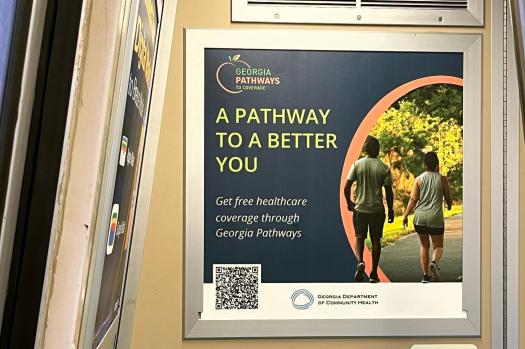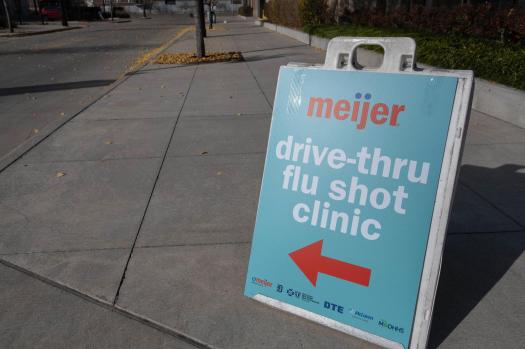By Sam Whitehead, Renuka Rayasam, and KFF Health News
Ashton Alexander finds it like a kick in the face whenever he watches an advertisement for Georgia Pathways to Coverage.
Related Articles
-
Louisiana upholds its HIV exposure law as other states change or repeal theirs
-
A doctor sees new hope for Alzheimer s disease patients and families. He wants you to know why
-
These tips from experts can help your teenager navigate AI companions
-
Teens say they are turning to AI for friendship
-
Following Venus Williams comment on health insurance, here s what to know about athlete coverage
Alexander claimed that despite meeting the requirements because he is a full-time student, he was repeatedly turned down for enrollment in Pathways, the state’s limited Medicaid expansion.
Ten states, including Georgia, have not extended Medicaid health coverage to a larger group of adults with low incomes. Those who can demonstrate that they are working or completing 80 hours per month of other qualifying activities, such as volunteering or attending school, are instead eligible for coverage. And at the moment, it is the only state doing so.
This marketing is out here, but why? “I live in Conyers, which is east of Atlanta,” the 20-year-old added. It really isn’t reachable.
Alexander claimed that his calls to caseworkers went unanswered and that the boilerplate text used in each denial was the same. He was given caseworkers from the same state agency, but state officials were unable to connect him with them. He added that the number rang to a fax machine when he asked for a supervisor’s contact details so that he could challenge his denial.
Alexander said that it was impenetrable. I’ve tried everything, and it’s not possible.
Similar complicated state procedures and employment regulations may soon be encountered by millions more Americans attempting to obtain Medicaid insurance. $200 million will be provided under legislation signed into law by President Donald Trump on July 4 to assist states that have expanded Medicaid in developing systems by the end of the next year to determine if certain members are fulfilling the requirements.
For a long time, conservative lawmakers have maintained that only people who are actively trying to stop receiving government aid should receive public benefits. However, as the only Medicaid work requirement program in the US demonstrates, they can be expensive for states to administer, difficult for enrollees to understand, and inconvenient for other public benefit systems. Georgia’s marketing spending is almost equal to its health benefits budget. In the meantime, the majority of participants under 65 are either employed or face an obstacle that keeps them from doing so.
According to Joan Alker, executive director of Georgetown University’s Center for Children and Families, Georgia demonstrates the high cost of establishing these bureaucratic red tape systems.
KFF Health News has been reporting on the problems plaguing Georgia’s Pathways program, which was introduced in July 2023, for the past two years. Through March, almost 100,000 Georgians had submitted applications. At the end of June, little over 8,000 people were enrolled; however, if the state completely extended Medicaid in accordance with the Affordable Care Act, over 300,000 people would be eligible.
According to a KFF Health News examination of state statistics, the program has cost more than $100 million, with only $26 million going into health services and more than $20 million going for marketing contracts.
According to Alker, that was a rather startling waste of public dollars.
After a group of Democratic senators, including both members of the Georgia delegation, requested that the government watchdog investigate the program, the Government Accountability Office is now looking into the program’s expenditures. This fall, findings are anticipated.
According to a March state report to the federal government, Georgia was unable to ascertain whether applicants satisfied the requirements for qualifying activity. A fundamental tenet of the program, the report also stated that no one had been suspended by the state for not showing up for work. In the meantime, over 5,000 individuals were awaiting verification of their eligibility for Pathways as of March.
Georgia’s eligibility system for other public programs, such food stamps and cash assistance, has been overburdened by the Pathways program.
The state requested a renewal of Pathways from the federal government in April. Officials pulled back important components of its application, like the need that registrants submit work on a monthly basis. The program’s detractors also claim that the red tape hinders job placement for participants.
According to Natalie Crawford, executive director of Georgia First, a group that promotes financial responsibility and access to affordable health care, Georgia’s experience demonstrates that administrative complexity—rather than job readiness—is the main result.
Garrison Douglas, a spokesman for Georgia’s Republican governor, Brian Kemp, defended the program in spite of the difficulties. In an emailed statement, he said, “Georgia Pathways is doing what it was intended to do: offer free healthcare coverage to low-income, physically fit Georgians who are willing to participate in one of our many qualifying activities.”
The 40 states (plus Washington, D.C.) that expanded Medicaid will have to get technology ready to handle the paperwork that certain Medicaid participants will now need to submit on a regular basis due to new federal rules in the tax and spending legislation.
People with impairments, those undergoing addiction treatment, and those caring for children under the age of 14 are among the groups that are protected from the federal statute.
Other states won’t see a rough rollout like Georgia, according to the Trump administration.
In an emailed statement, Centers for Medicare & Medicaid Services head Mehmet Oz stated, “We are completely confident that technology already exists that could enable all parties involved to implement work and community engagement requirements.”
Yvonne Taylor of Austell described the challenges she encountered when attempting to enroll in the program in a written public comment on Georgia’s application to prolong it.
She claimed that despite her repeated attempts to sign up, her application was rejected. Three times, not once or twice. She wrote in February, but customer support did not reply. I don’t have any coverage presently.
In a January reply, Victoria Helmly of Marietta stated that although she and her family members look after their father, state law does not exempt those who care for elderly people.
She wrote that Georgia ought to honor their contributions by providing health insurance. Let’s streamline this procedure to ultimately save lives and money.
KFF Health News, 2025. Tribune Content Agency, LLC is the distributor.












